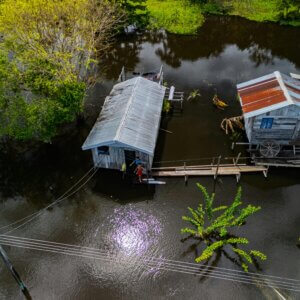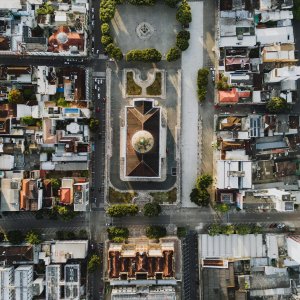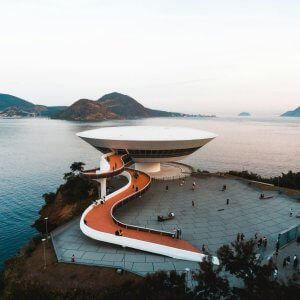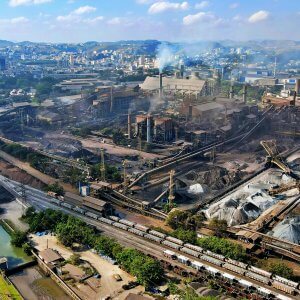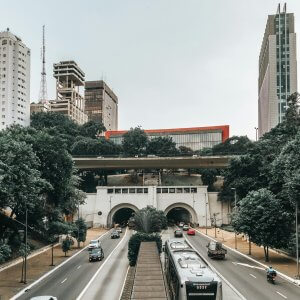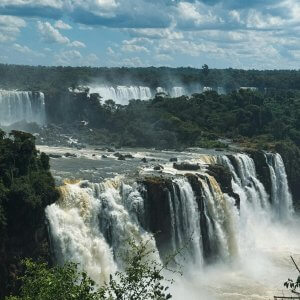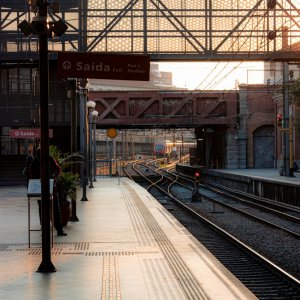The Brazilian economy benefits when the climate agenda is treated as an ally of growth—not as an obstacle. Brazil is experiencing a structural tension between two agendas that, although complementary, frequently clash: accelerated economic development and climate change mitigation. In a country with high inequality, significant social needs, and a strong reliance on resource-intensive sectors, urgent...
Author: Carlos Alexandre de Oliveira (Carlos Alexandre de Oliveira)
Brazil: Sea Level Rise
Brazil is facing progressive impacts, ranging from coastal erosion and chronic flooding to river and aquifer salinization and increasing damage to urban infrastructure.Sea level rise is one of the most visible and concerning effects of climate change, particularly for coastal countries like Brazil. With over 7,400 kilometers of coastline and major urban centers located along...
Brazil: How To Reach The Hardest-To-Reach Climate Target Group
Adult populations living in isolated rural areas of the Northern region, especially in the Legal Amazon.In the Brazilian context, the hardest-to-reach climate target group consists of adult populations living in isolated rural areas of the Northern region, especially in the Legal Amazon. These individuals are mainly characterized by remote geographic location, low income, limited access...
Brazil: Nuclear Energy Updates
Nuclear energy accounts for approximately 3% of the country’s total energy production.Over the past five years, nuclear energy has undergone significant changes in many countries worldwide, and Brazil is no exception. From the increasing pursuit of clean energy sources to economic and security challenges, the implementation of nuclear energy remains a relevant topic. Below, we...
Brazil: What Recent Climate Polling Tells Us
Support for renewable energy is practically unanimous: a PoderData survey (2024) shows that over 80% of Brazilians support investments in solar and wind energy and consider it essential that the country invest in clean energy sources. Recent surveys reveal widespread recognition of the importance of climate change among the Brazilian population. According to a Datafolha survey...
Brazil: 2025 Mid-Year Emissions Report Card
On July 17, 2025, the National Congress approved measures that relax environmental licensing and reduce protections for forest areas and indigenous communities. The Greenhouse Gas Emissions Estimation System (SEEG) recently released updated data showing a slight reduction in total national emissions in 2023, a trend that appears to have stagnated by the first half of...
Roadmaps for the Future: Brazilian Climate Experts on What Needs to Be Done
Lívio Giosa: A leader in the fight for sustainability in BrazilLívio Giosa is a Brazilian expert in sustainability and socio-environmental responsibility, serving as president of the Associação Paulista Viva, coordinator of the Instituto de Responsabilidade Socioambiental (IRES), and vice-president of the Associação dos Dirigentes de Vendas e Marketing do Brasil (ADVB/SP). He has dedicated himself...
Indigenous communities, quilombolas, residents of urban peripheries, and isolated rural populations are most impacted by a lack of access in Brazil
Climate justice in Brazil is a crucial issue, particularly in ensuring equitable access to renewable energy, public transportation, and waste management services. Several demographic groups face significant barriers in this context, perpetuating socioeconomic and cultural inequalities.Affected Demographic Groups The groups most impacted by a lack of access include indigenous communities, quilombolas, residents of urban peripheries,...
Despite the Progress in Developing NBS, Brazil Faces Challenges Such as Deforestation and Ecosystem Degradation
Nature-based solutions (NBS) have gained prominence as effective strategies to address climate change by promoting the conservation, restoration, and sustainable management of ecosystems. In Brazil, these solutions are especially relevant due to the country’s vast biodiversity and environmental challenges.Use of Nature-Based Solutions in Brazil Brazil has implemented several NBS, such as the restoration of degraded...
Automated Public Transportation in Brazil
Public transportation in Brazil plays an essential role in urban mobility, and millions of citizens use it daily. The main means of public transportation are buses and urban trains, which connect different regions and facilitate the population’s movement.Number and Types of Vehicles in Use Brazil has a diverse fleet of public vehicles. According to data...



